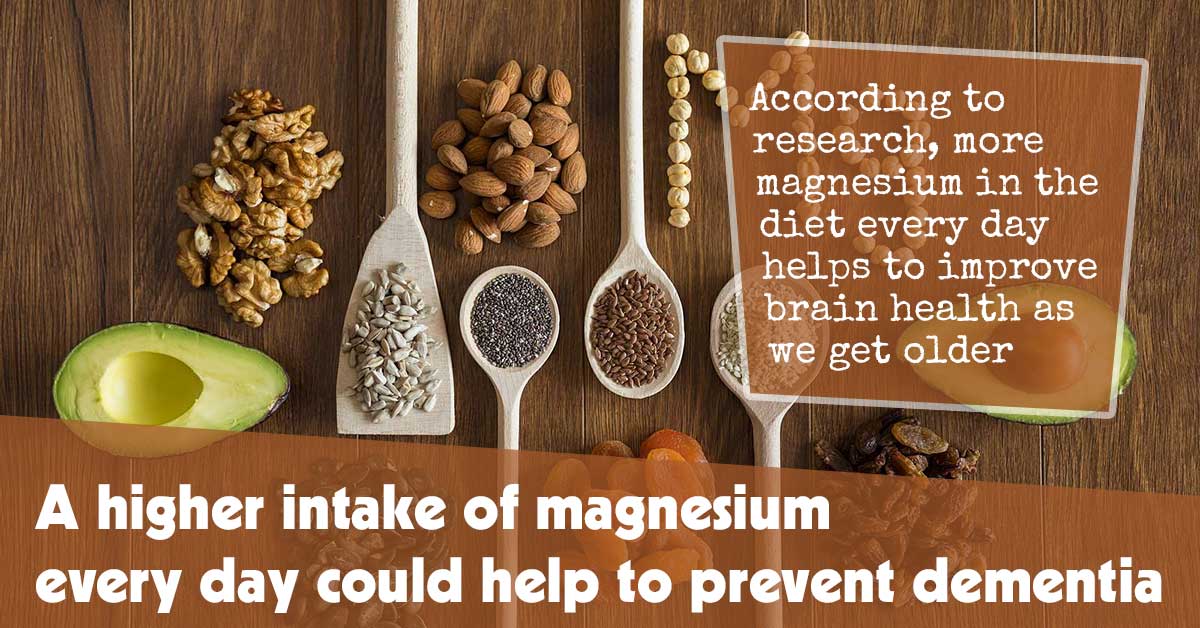According to research, more magnesium in the diet every day helps to improve brain health as we get older. The study results suggest that increased consumption of foods rich in magnesium which include nuts and spinach may also help reduce dementia risk.
The study of over 6,000 cognitively healthy individuals between the ages of 40 and 73 found individuals who consume over 550 daily milligrams of magnesium have a brain age that’s about 1 year younger by the time they’re 55 years old in comparison to individuals with a normal magnesium consumption of approximately 350 milligrams daily.
The study shows a 41% increase in magnesium consumption could result in less brain shrinkage related to aging, which is linked to improved cognitive function and reduced risk or a delay in dementia onset later in life.
This research emphasizes the potential benefits of a magnesium-rich diet and the part it plays in improving brain health.
It’s estimated that the number of dementia diagnoses globally will increase to 152.8 million by 2050, which will place a significant strain on social and health services as well as the global economy.
There’s no dementia cure and for the past 30 years there have been no successful pharmacological treatment developments, and it’s been suggested that more focus should be placed on prevention.
This study could help inform public health intervention development aimed at promoting healthy brain aging through dietary strategies.
A higher magnesium consumption in the diet from a younger age could help protect against cognitive decline and neurodegenerative diseases by the time we are 40 years old.
The study reveals that higher dietary consumption of magnesium could help with neuroprotection early in the aging process and preventative effects could start in our 40s or even before. This means that individuals of all ages need to be more aware of their magnesium consumption.
It was also found that the neuroprotective effects of additional dietary magnesium seems to benefit women more in comparison to men and more so in women who are post-menopausal compared to pre-menopausal women, but this could be due to magnesium’s anti-inflammatory effect.
An online questionnaire was completed by the participants 5 times over a 16-month period. The responses they provided were used for calculating their daily consumption of magnesium and were based on 200 various foods with different portion sizes.
Foods rich in magnesium were used which included whole grains, seeds, nuts, legumes, and leafy green vegetables to provide an average estimate of magnesium consumption from the diets of the individuals.



